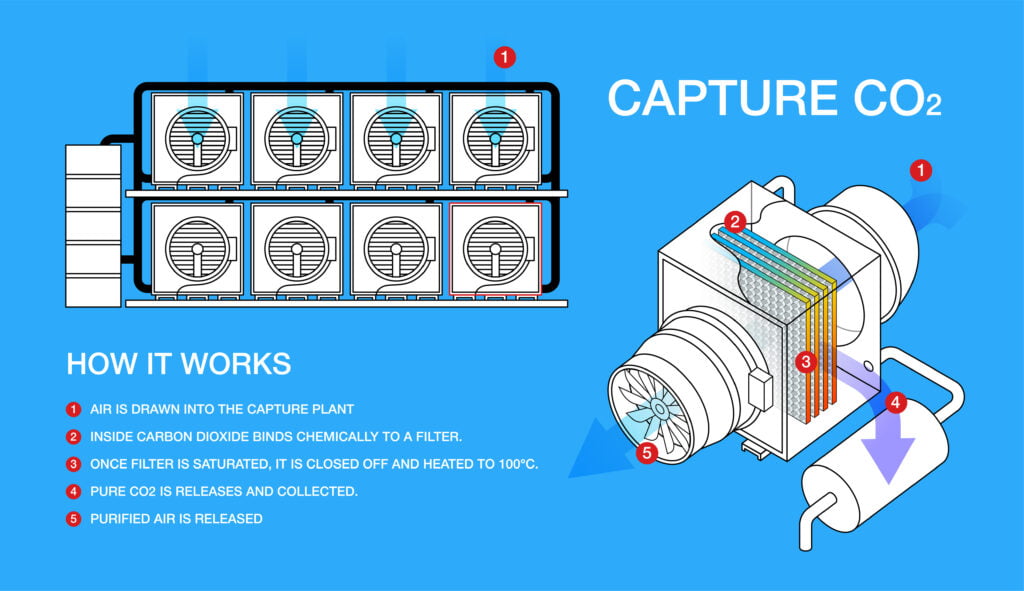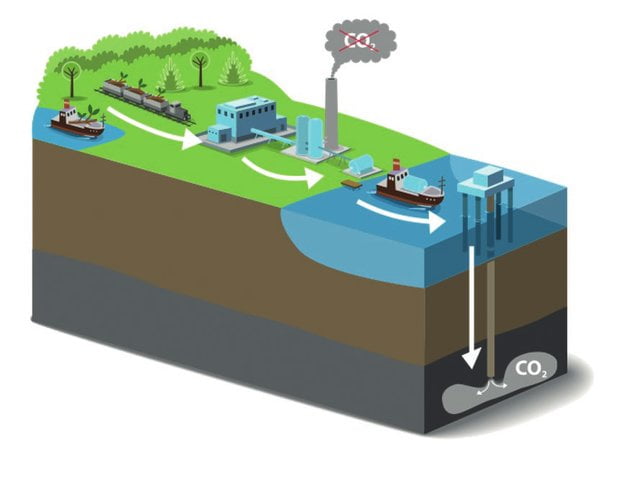Direct air capture (DAC) and Bioenergy with carbon capture and storage (BECCS)
Carbon capture technologies aim to reduce greenhouse gas emissions by capturing carbon dioxide (CO2) from various sources and storing it or utilizing it in different ways. There are several types of carbon capture technologies. We will just discuss two types of Carbon Capture in this article.
Direct air capture (DAC)
Direct Air Capture (DAC) is a technology that involves removing carbon dioxide (CO2) directly from the atmosphere. The captured CO2 can then be stored permanently underground or utilized in various applications, such as enhanced oil recovery or the production of synthetic fuels. DAC is considered a potential tool in the fight against climate change, as it can help reduce atmospheric CO2 levels. The process of DAC typically involves using large fans to draw in air, which then passes through a filtration system that selectively captures CO2 while allowing other air components to pass through. The captured CO2 is then released from the filter material through a regeneration process, typically using heat or pressure changes. Some of the pioneers in this field are Climeworks, a Swiss company that operates multiple DAC plants in Europe, Carbon Engineering, A Canadian company, and Global Thermostat, A US-based company.

The cost of Direct Air Capture varies depending on the specific technology, current estimates suggest that the cost of capturing one metric ton of CO2 using DAC ranges from around $100 to $600.
Bioenergy with carbon capture and storage (BECCS)
Bioenergy with carbon capture and storage (BECCS): This approach combines biomass energy production with carbon capture and storage. The CO2 absorbed by plants during growth is captured when the biomass is burned for energy, resulting in negative emissions.

Once captured, the CO2 can be stored through geological sequestration, such as injecting it into deep underground rock formations, depleted oil and gas reservoirs, or saline aquifers. Alternatively, the captured CO2 can be utilized in various applications, such as enhanced oil recovery, mineral carbonation, or the production of fuels, chemicals, and building materials.
BECCS has
